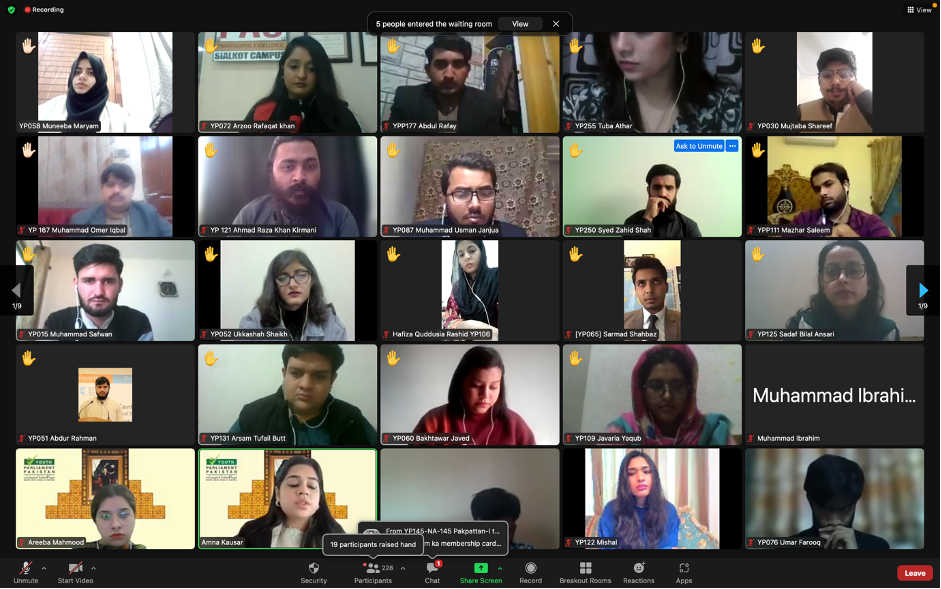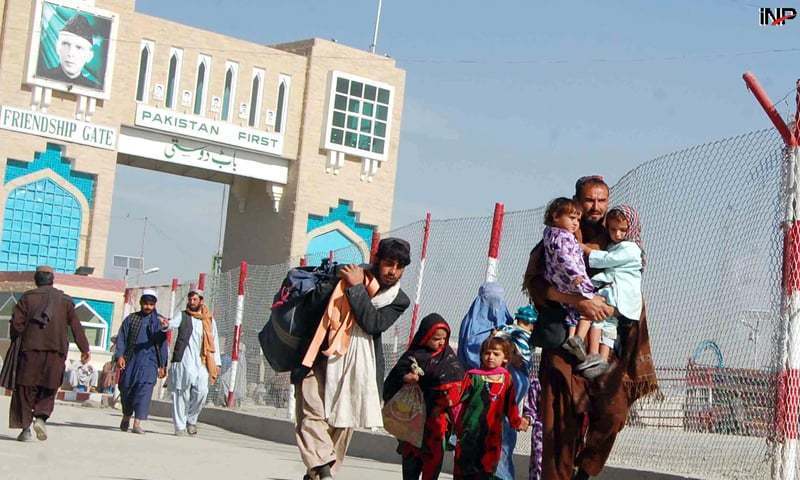By: Wali Ejaz
The climate-conflict nexus is hard to explore. This article is a bid to present some research on the link between climate change and conflict which can provide us food for thought. It would further help us to analyze the situation of Pakistan vis-à-vis climate challenges. First of all, it would be pertinent to define climate change because many people especially students cannot define climate change in simple words. A professor and Senior Scientist at the Center for comparative and international studies, Vally Koubi, writes in her research paper “Climate Change and Conflict” that “Climate change is a large-scale, long-term shift in the planet’s average temperatures and weather patterns”.
Moreover, she (Vally Koubi) put forward two pathways that link climate and conflict: direct and indirect pathways. As far as the direct pathway is concerned, that deals with the psychological changes and scarcity of resources. In the direct pathway, two important points are discussed. First is interpersonal violence, it maintains that warmer or colder temperatures affect human psychology. Temperature elevates aggressive and hostile behavior. It has a direct bearing on psychology. Second is intragroup violence, it is a result of paucity of renewable resources such as freshwater. This second point is in line with the neo-Malthusian argument, that changing climate, rising temperature and declining rainfall along with overpopulation may lead to scarcity of resources. In a corollary to this, sustaining livelihood would be a big challenge.
Furthermore, the indirect pathway explains the link between economic challenges, migration, and climate change. Economic outcomes are marred by adverse climate conditions. It could pave the way for intergroup violence by worsening agricultural production, halting economic growth, creating food insecurity, and skyrocketing prices of commodities. Agricultural countries are more likely to be victims of climate change. Edward Miguel along with other researchers took rainfall as a variable to study the possibility of civil war in agricultural countries. He studied Sub-Saharan African countries from the period 1981-1999 and concluded that “Using rainfall shocks as instrumental variables for economic growth, we find that growth shocks have a dramatic causal impact on the likelihood of civil war: a five-percentage-point negative growth shock increases the likelihood of a civil war the following year by nearly one-half”. Moreover, climate change may hit through different channels: migration is one of them. Many researchers argue that migration might trigger or prolong the conflict. Ramesh Ghimire, Susane Ferreira, and Jeffrey H. Dorfman wrote a thought-provoking paper titled “Flood-induced Displacement and civil conflict”. In this paper, they attempted to analyze the nexus between displacement by flood and civil conflict using data for 126 countries during 1985-2009. They deduced that although displacement did not trigger any conflict, it prolonged the existing conflict.
Another study “Climate change, human security and violent conflict” sheds light on the challenges, climate change creates to human security. It further highlights that climate change could undermine the state’s capacity to provide opportunities and services which are essential to livelihood. Three main points are raised in this research paper: the first is the vulnerability of social groups, local places, and the possibility of violent conflicts due to the challenges by the absence of enough livelihoods. The second is that climate change damages human security by curtailing access to natural resources and marring the quality of natural resources. Third is that climate change affects the state’s capacity to ensure people’s livelihoods. This research paper shows that two indicators decide the level of human insecurity and conflict; the first is the extent to which a nation relies on natural resources and the second is the strength of social institutions to manage change. Four factors create conflict while interacting with climate change; vulnerable livelihoods, poverty, weak state, and migration.
In addition to what have been said, United Nations Office for the Coordination of Humanitarian Affairs published a paper titled “Understanding the climate-conflict nexus from a humanitarian perspective: a new quantitative approach” which concludes that lower-and lower-middle-income countries are more likely to be hit by climate-conflict nexus.
Given the challenges climate can pose, where does Pakistan stand? It would not be wrong to say that Pakistan may easily be prey to climate change. Pakistan has been going through troubled and troubling times. It possesses almost all the above-mentioned flaws which lead to climate-related challenges. Effective and efficient governance is prerequisite for combating climate challenges. Sadly, Pakistan’s performance in almost all the indicators of governance is not satisfactory. Additionally, hodgepodge of political, social and religious issues is further diverting the attention of government from this hot issue. Palpably, countries having agricultural basis are more vulnerable to climate challenges. In contrast to a non-agrarian community, an agrarian society can face more issues such as: food insecurity, low production, unavailability of water and unnatural rain patterns. Global Hunger Index shows that Pakistan ranks 92nd out of 116 nations; this could further be worsened due to the apathy towards climate. As per the current situation, it does not seem that Pakistan has strong institutions enough to withstand any climate-related challenges. Climate-related issues in conjunction with existing issues (such as tottering economy, inflation-stricken people, poverty, political instability, trust deficit among provinces and migrants from Afghanistan) may exacerbate human security. Research shows that countries already having daunting challenges can witness instability and managerial crisis owing to climate change. We are in dire need of a roadmap to face adverse conditions of climate. Another important thing is educating people about climate change. Many people in cities general and in rural areas in particular, do not take climate change as an unavoidable issue. It is the need of hour to make people understand that climate change is a big issue and it can be overcome through responsible human behavior. The media might pay little attention to climate change for apprising people of the gravity of the issue.
The writer is a graduate of Quaid-i-Azam University Islamabad. He works as an independent researcher and writes on national and international issues. He can be reached at [email protected]








